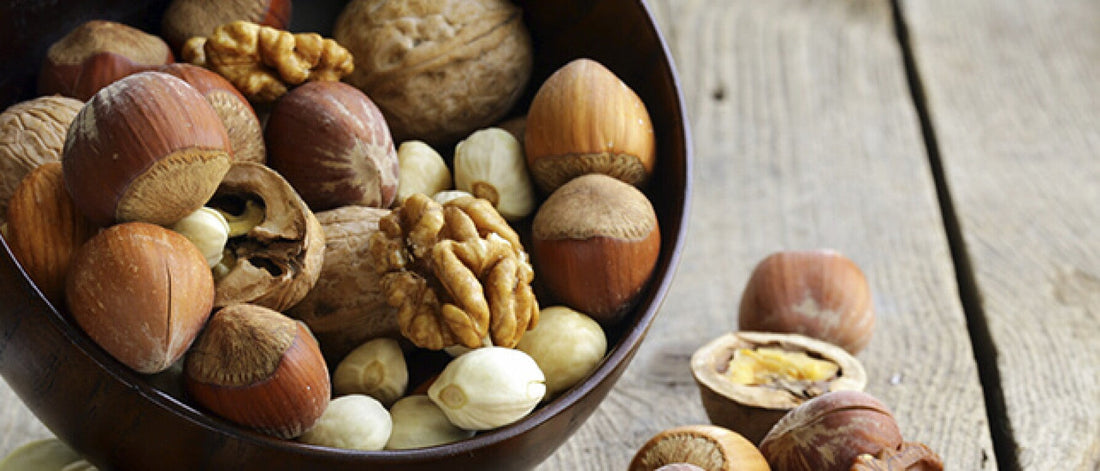There was a time when low-fat, high-carbohydrate (carb) diets were all the rage and it was thought that eating fat caused weight gain. Now research shows that eating carbs can pack on the pounds more than eating fats (especially healthy fats). While there are many benefits that come from eating a low-carb diet, be sure to reduce carbs in moderation; eating a certain amount of carbs is important for your health.
When carbs are digested, they break into small particles of sugar (galactose, glucose, and fructose) that enter through the small intestine into the blood stream, then to the liver where they are converted into glucose (sugar). Glucose is the primary energy that fuels muscles and the brain.
Excess glucose is stored as glycogen in the liver and muscles. When the body reaches storage capacity for glycogen, glucose is stored as fat. This is why eating too many carbs can lead to weight gain.
Thus, the body needs carbs to function properly. However, most people consume far more carbs than they need.
Simple carbs, on the other hand, include pre-processed foods (such as refined white flour), white sugar, and fruit juices without any pulp. Simple carbs are digested very quickly and can cause a spike in your blood sugar.
When eating carbs, opt for complex carbs to get the most benefit from fiber and other phytonutrients from the plants.
When making any dietary changes, take things slowly and be easy on yourself. It’s hard to cut out foods that you’ve eaten for years or habits you’ve had your whole life. But with these tips, you’ll be well on your way to a lower-carb lifestyle and your body will thank you.
*Editor’s Note: The information in this article is intended for your educational use only; does not necessarily reflect the opinions of the Chopra Center's Mind-Body Medical Group; and is not a substitute for professional medical advice, diagnosis, or treatment. Always seek the advice of your physician or other qualified health providers with any questions you may have regarding a medical condition and before undertaking any diet, supplement, fitness, or other health program.
Benefits of a Low-Carb Diet
According to the Harvard School of Public Health, a moderately low-carb diet can help with losing weight and preventing heart disease. Other studies have shown the diet can help reverse chronic inflammation, inhibit or slow cancer growth, and help manage diabetes.What Is a Carbohydrate?
Carbs are classified as complex (starches and fiber) and simple (sugar). They are found in grains, fruits, vegetables, and milk. Most vegetables are relatively low in carbs, and shellfish contain small amounts of carb.When carbs are digested, they break into small particles of sugar (galactose, glucose, and fructose) that enter through the small intestine into the blood stream, then to the liver where they are converted into glucose (sugar). Glucose is the primary energy that fuels muscles and the brain.
Excess glucose is stored as glycogen in the liver and muscles. When the body reaches storage capacity for glycogen, glucose is stored as fat. This is why eating too many carbs can lead to weight gain.
Thus, the body needs carbs to function properly. However, most people consume far more carbs than they need.
How Many Carbs Do You Really Need?
According to USDA dietary guidelines, the average adult should consume 225 to 325 grams of carbs daily, which is 45 to 65 percent of their recommended calorie intake. However, the guidelines are currently being revised and that number may be slightly lowered. In contrast, the Mayo Clinic states that a typical low-carb diet range includes a daily limit of 60 to 130 grams of carbs—but note that this is only for a low-carb diet, if you are trying to lose weight. If you decide to try a low-carb diet, work with your doctor or health care provider as lowering your carb count could cause side effects.Complex versus Simple Carbs
Not all carbs are created equal. Complex carbs include whole grains and whole fruits and vegetables, which all contain lots of fiber and vital phytonutrients. Fiber is digested and converted to glucose slowly, which helps to keep the blood sugar levels in check.Simple carbs, on the other hand, include pre-processed foods (such as refined white flour), white sugar, and fruit juices without any pulp. Simple carbs are digested very quickly and can cause a spike in your blood sugar.
When eating carbs, opt for complex carbs to get the most benefit from fiber and other phytonutrients from the plants.
6 Ways to Reduce Your Intake of Simple Carbs
Want to reduce the amount of simple carbs in your diet? It may be hard to make drastic changes to your diet all at once, so pick one or two of these ideas to start with, and then implement more of them as you are able.- Reduce or eliminate all sodas and sweetened drinks. This includes diet sodas, which can cause as much weight gain as regular sodas. Drinking a sweetened drink is like main-lining sugar straight into your blood stream. Try replacing sugared drinks with sugar-free herbal tea or water. Add flavor to your water with a slice of lime or lemon, a slice of cucumber, or a few raspberries or strawberries (look for organic berries, as conventionally-grown berries top the Dirty Dozen list). If you’re drinking multiple cans of soda a day, start by drinking half as much. Eventually cut back further until you’re not drinking any soda at all.
- Reduce or eliminate refined grains. This includes refined flours and foods with white, enriched, or bleached flour. Most breads, even those labeled as “whole grain,” include refined grains. A whole grain is fully intact, such as a grain of rice or quinoa. There are varieties of bread made from whole sprouted nuts and seeds, but for the most part, breads, pastas, crackers, and cookies all contain refined grains.
-
Reduce or eliminate sugar. With sugar consumption linked to conditions such as heart disease, dementia, obesity, and diabetes, it’s particularly important to cut back on sugar intake for optimal health. Sugar hides in 74 percent of processed foods, so read labels carefully.
A good rule is to consume no more than 25 grams of added sugar (about six teaspoons) a day. For context, the average soda contains 40 grams of sugar—almost twice the daily recommendation. Americans now, on average, consume 1/3 cup of added sugar per day. - Eat starchy root vegetables in moderation. Although all vegetables have beneficial nutritional properties, if you are trying to follow a moderately low-carb diet, eat starchy root vegetables (such as potatoes, sweet potatoes, and beets) no more than once or twice a week.
- Eat high-quality sources of protein. When you cut back on carbs, you’ll need other foods to help you stay satiated. It’s important to choose high-quality protein sources (not processed meats, which can also contain sugar and other carbs). Aim to eat free-range, organic, or wild-game animal protein whenever possible. Cut back on red meat and eat fish a few times a week, checking the Monterey Bay Seafood Watch website to ensure you’re eating sustainable, low-toxin fish. Beans—although high in carbs—are also high in protein and fiber, which help to slow the release of glucose into the bloodstream. Quinoa, nuts, and seeds are also good sources of non-animal complete proteins.
- Eat high quality, healthy fats. Another good way to stay satiated while cutting back on carbs is to fill up on healthy fats. These include avocados, olives, nuts, and seeds (such as chia and hemp), nut butters, and oils (such as coconut, avocado, olive, and walnut oils). Your brain needs healthy fats to function properly.
When making any dietary changes, take things slowly and be easy on yourself. It’s hard to cut out foods that you’ve eaten for years or habits you’ve had your whole life. But with these tips, you’ll be well on your way to a lower-carb lifestyle and your body will thank you.
*Editor’s Note: The information in this article is intended for your educational use only; does not necessarily reflect the opinions of the Chopra Center's Mind-Body Medical Group; and is not a substitute for professional medical advice, diagnosis, or treatment. Always seek the advice of your physician or other qualified health providers with any questions you may have regarding a medical condition and before undertaking any diet, supplement, fitness, or other health program.






















